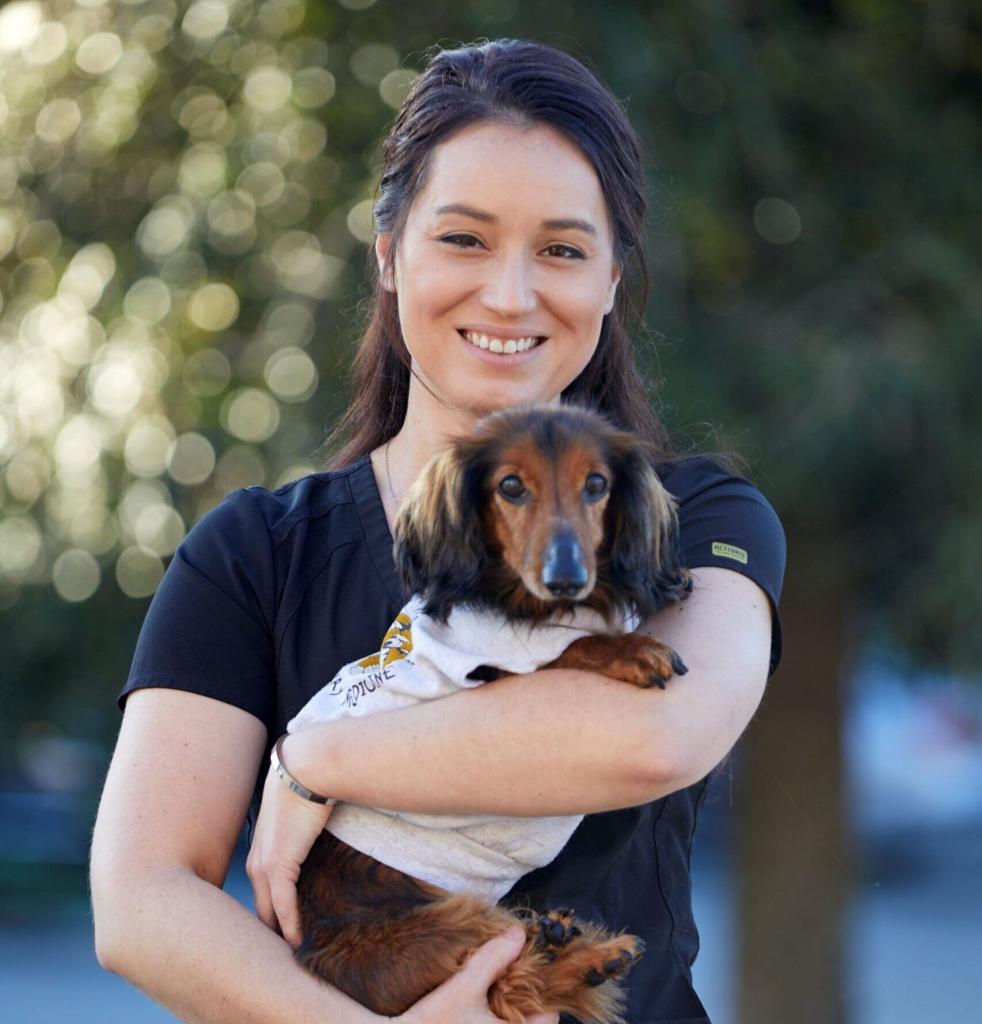Dr. Carrissa Wood, DVM, Practice Limited to Oncology, who treats pets in our Central Florida locations, recently presented “Demystifying Cancer Diagnostics” to nearly 100 primary care veterinarians throughout Florida in the second segment of the virtual summer series, “How to Navigate through the Cancer Diagnosis.”
A recording of her full presentation can be found at:
As part of the constantly evolving field of veterinary oncology and the all-too-common long wait times for pet owners to see specialists, Dr. Wood outlined a number of new and traditional diagnostic tools and provided a peek into cutting-edge options, including genomics and precision medicine.
“Diagnostics are changing and evolving,” she said. “Time-tested diagnostics remain valuable and important, as does our improved ability to provide more targeted therapies.”
“No one test can tell it all,” she stressed, urging vets to carefully evaluate the science first and not be swayed by the ‘new shiny objects’ in the ever-growing promotion of new tests being marketed by the industry giants.
She began her talk with an overview of Cytology, where a concerning mass is aspirated and a pathology report is provided on the specimen. “Not every mass is cancerous,” she explained, pointing out the importance of high-quality specimens and the gathering of a detailed history of the pet’s health.
Lymph node evaluation can be easier with the use of a detailed schematic, which she showed as another effective diagnostic tool. In situations where more extensive samples are removed, including skin lesions or oral masses, histopathology is a helpful diagnostic tool.
When determining the specific type of cancer, common tests include Flow and PARR. Flow is less invasive but requires a live specimen and is more useful in dogs than cats; whereas PARR does not require fresh cells and has proven to be 85% accurate in confirming canine lymphoma and 91% in felines.
Dr. Wood gave an overview of prognostic panels but cautioned about the possible confusion surrounding rating systems. Collaboration with a specialist may be helpful in this area.
In animal cancers, like humans, the age of genomics is quickly evolving, opening up an array of new diagnostic, therapeutic and prognostic tests. “We still have a long way to go,” she stressed, detailing a number of newly available screenings. “You can’t always take a test at face value.”
Among the new screenings she included were:
- OncoK9, a liquid biopsy blood test recommended for dogs at high risk for cancer or those in remission.
- NuQ, an early cancer screening detection that uses a plasma sample but does not identify a specific type of cancer and should not be used as a final determinant.
The three major companies in the DNA sequencing space are Vidium, Fidocure, and Imprimed. Dr. Wood provided an overview of each, reiterating limitations as well as the importance of using a variety of diagnostic tools and consulting with a specialist in order to make the best decisions for a pet and help guide owners’ expectations.
For more details on this topic, please refer to the recording of Dr. Woods’ entire presentation by clicking here, and make sure you always consult with your primary care veterinarian regarding your pet’s unique situation.



